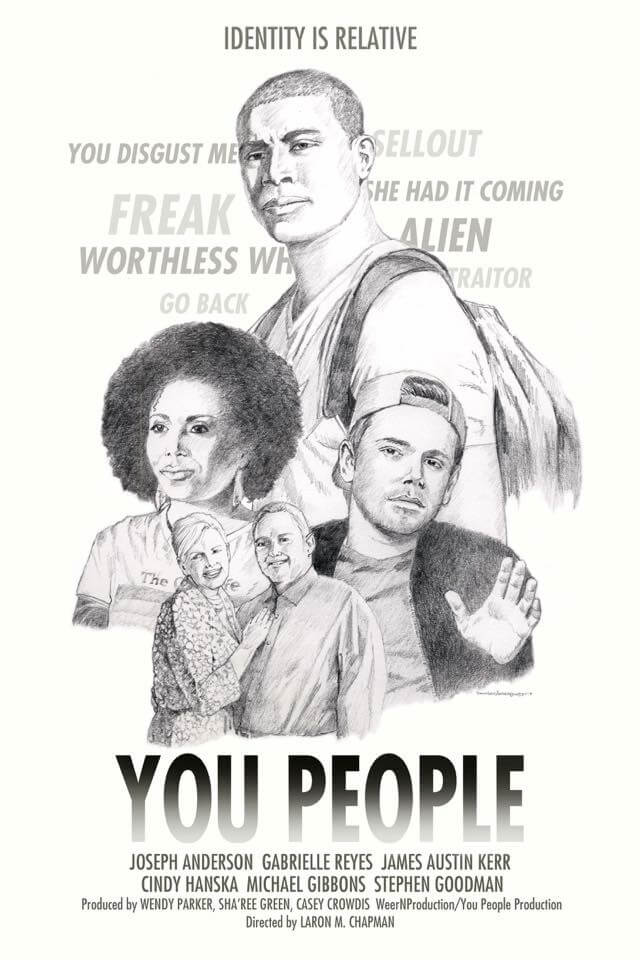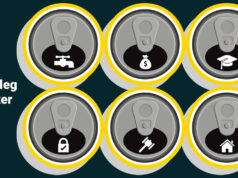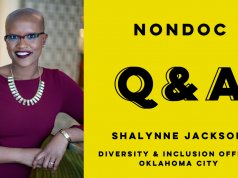deadCenter Film Festival has grown in the seven years since I last attended. So has the OKC metro area. Not in leaps and bounds, but lurches — in diversity, representation, art and culture. None of deadCenter’s slate of films for the 2018 festival this past weekend better embodies this progression than Laron Chapman‘s feature-length directorial debut, You People (see video above).
The dramedy, which premiered to a sold-out crowd June 7 at the festival, tells the story of Chad, a black college student who suffers a crisis of ethnic identity when he’s caught between his white adopted family and the black biological family he never knew.

One of the great things about a local film festival screening (especially for a film in which you know many of the people involved) is if you hate it once it starts, you can’t walk out. You’re essentially grabbed by the collar, and if you like it, kissed. If you don’t, you’re punched in the face repeatedly. If you’re a sensible, open-minded, empathetic member of You People’s audience, pucker up. If not, assume the fetal position.
Parts of You People were silence-inducing. Not a bad silence. An awkward silence. A silence that (hopefully) forces the viewer to reckon with what they’re witnessing and confront their own issues.
While it has the potential to be divisive to some less progressive audiences, the biggest strength of the film is its inclusivity. It paints a detailed picture with a broad brush, utilizing a pallet that covers black, white, gay, straight, transgender, old, young, sober and drunk.
You People posits a novel concept: Maybe we’re all just people who are trying to get by and deserve to be understood. Strong performances from local talent and the fresh voice of Chapman make this possible.
With its comprehensive representation of nearly every walk of life and a specificity that reaches far and wide, the film could be for just about anybody. Take it from me, an average white guy: Not only did I relate to it, but, considering my struggle with alcoholism, I’ve actually lived some it.
It reflects the societies within OKC and, by its very existence, the city’s emerging divergent art. This film is not only a moving mural of America, it’s a self-portrait of our metro. OKC Pride Weekend‘s appearance on the horizon made this screening extremely relevant, as well.
One hopes this film, with the help of its Best Oklahoma Film Award, blazes a trail beyond deadCenter that’s soon well-worn from countless other socially conscious, diverse and compassionate Oklahoma films.





















